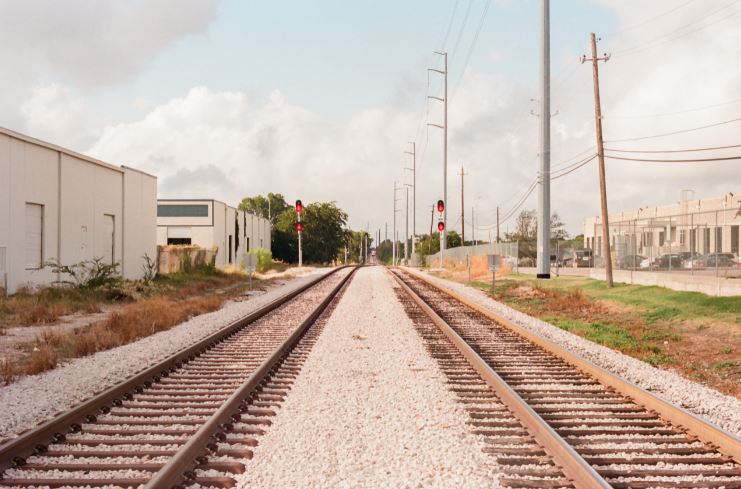
With more than three-quarters of the residents commuting solo for work, it’s no wonder that Austin’s roads see high traffic congestion. And with the metro region’s 2.3 million population expected to double in a couple of decades, the congestion is all set to intensify to a great extent.
The huge number of cars on Austin’s roads is a cause of concern for traffic movement and the increasing pollution levels. In fact, the transportation sector is one of the largest contributors to greenhouse gas emissions in the US. And to keep it in check, the administration has been proposing extensive improvements in the public transit system across the country.
In Austin, the local administration has been trying its best to encourage commuters to go for public transport. It has been developing light rail and electric buses to ease traffic, especially during office hours. In fact, the residents have also been involved in funding a part of such projects, thanks to a property tax hike made last year.
But are the locals ready to ditch their cars and embrace public transport? Looking at the present scenario, the answer seems to be negative as of now.
The Current Scenario
While convincing the residents about the necessity of the hike has been relatively smooth, it’s an entirely different story when it comes to encouraging them to use the public transit system. And the task becomes more problematic when it comes to the residents living in the city’s suburbs.
If we look at the pre-pandemic figures, only 4% of the residents of Austin preferred to travel by public modes of transit to reach their workplaces. But during the pandemic era, we witnessed a further decrease of around 40%.
There is another cause of concern apart from congestion and pollution. The huge traffic also leads to crashes, keeping Austin Car Accident Attorneys busy dealing with compensation-related cases.
To deal with these issues, the administration has come up with Project Connect, an ambitious plan to boost the public transit scenario in Austin. But according to the opinion of some transport experts, this plan may not be able to achieve the expected results.
For example, Kara Kockelman, a professor of transportation engineering at the University of Texas at Austin, is skeptical about the success of Project Connect. According to her research, she suggests that the planned rail lines will handle only around 1-2% of the current trip demands.
The effect of the pandemic is another aspect to consider. With people losing jobs or opting for alternate modes of work, the number of commuters traveling by public transit has decreased considerably. In fact, according to Rob Spillar, the director of Austin’s transportation department, the current rush hour traffic is around 13% lower than the pre-pandemic figures. Again, this shows the popularity of telecommuting for work.
This puts forward the question of whether the ambitious Project Connect will encourage people to embrace public transit.
Is A Change Likely?
The only rail line in Austin for commuters at present doesn’t see much footfall. This is because the trains run at 30-minute intervals and also the journey is more time-consuming than going by car.
This sheds some light on why commuters prefer to travel by their cars instead of public transit.
But, this might change, as far as the efforts of the administration are concerned. At present, the plans include the development of at least three new rail lines connecting the different parts of the city, along with a downtown transit tunnel to enable faster travel. The bus services across the city are also up for some extensive improvements.
The administration is optimistic that more people will start opting for public transit once the city successfully develops a robust transit system.
RELATED ARTICLES
Recent Posts
- Major Theft Ring Busted: Over $200,000 in Stolen Lego Sets Recovered in Eugene, Oregon
- Judge Denies Texas’ Bid to Shut Down Migrant Shelter Network in El Paso
- Single Mother in Memphis Seeks Help for Troubled Son Amid Rising Concerns
- California’s Proposition 47 Reform Sparks Intense Political Debate Over Public Safety
- U.S. Man’s Social Security Benefits Denied Over Citizenship Confusion
Categories
Our Supporters
Gold Supporters
Christopher Simon – Atlanta Truck Accident Lawyer
Skiver Law Firm – Phoenix Truck Accident Lawyer
Winer, Burritt & Scott, LLP – Los Angeles Clergy Abuse Law Firm
Michael E. Fenimore P.A. – Pensacola Car Accident Lawyer
Pillsbury & Coleman, LLP – San Mateo Long Term Disability Lawyer
The Law Office of Randall J. Wolfe, P.C. – Oregon City Personal Injury Lawyer
Davies Hothem Injury Law – Buford, GA Car Accident Attorney
Houston Federal Criminal Defense Attorney
Darrow Law Firm – Houston Federal Crime Lawyer
Kansas City Personal Injury Lawyer
Atlanta Truck Accident Attorney
Aitken *Aitken* Cohn Trial Lawyers – Santa Ana Personal Injury Attorneys
Dawson Law Group- Portland Personal Injury Attorneys
CT Mediation Center- New Haven Family Law Attorney
Little Rock Personal Injury Lawyer
Katy Car Accident Lawyer
Franklin Divorce Attorney
Palermo Law- Long Island Personal Injury Lawyer
Dan Rose – San Francisco Car Accident Attorney
Taylor Siemens – Liberty, MO Personal Injury Attorneys
Pfeifer Law Firm – Little Rock Car Accident Lawyer
Walkup, Melodia, Kelly & Schoenberger – San Jose Car Accident Attorney
Solomon, Dwiggins, Freer & Steadman – Las Vegas Business Litigation Lawyer
Roane Law – Asheboro NC Car Accident Lawyer
Dorsch Law Firm – Overland Park Estate Planning Attorney
The Tennessee Sledgehammer – Hermitage, TN Car Accident Lawyer
Cook Law Group – Gainesville, GA Car Accident Lawyer
Simon Bridgers Spires – Atlanta Personal Injury Lawyer
Injury Law Associates – Kansas City Motorcycle Accident Lawyer
Potts & Potts – Honolulu Personal Injury Attorney

